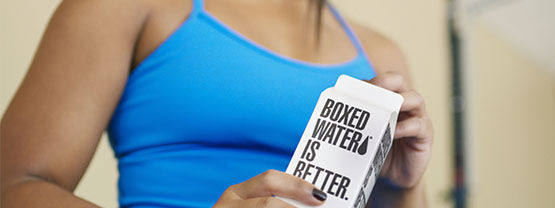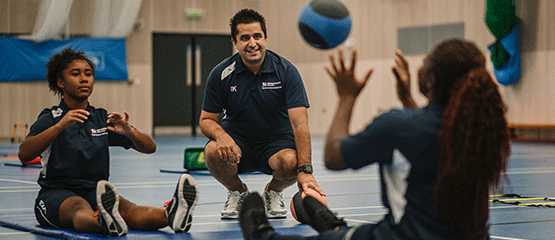With Ramadan beginning and the Great Birmingham Run set to take place on the 26 May, Birmingham City University assistant lecturer and PhD researcher, Ayazullah Safi, shares his advice on how to eat and train for the run whilst fasting.
Running during Ramadan
Ramadan (fasting) is one of the five pillars of Islam and it is one of the most important months of the year for Muslims around the world. Beginning at the start of May, the majority of Muslims will be fasting during the daylight hours.
During the month of Ramadan, most people aren’t aware of the steps they can take to improve their physical and mental health during the day. I often receive questions from people exercising or training for sport events on how to prepare whilst also fasting.
Throughout the fasting days we tend to crave things that may not be healthy or necessary, but it is essential we consume the correct nutrients during Ramadan to fuel our bodies and maintain our health.
For those who are fasting as well as exercising or training for the run, it is especially important to plan your diet and fitness programme carefully.
Consider your diet
If you are fasting and preparing for a running event then it is important to make small changes to your diet during Iftari (the opening the fast meal) and Suhur (the pre-dawn meal) at least the day before you run if not throughout the month.
Some of the things you need to avoid are salt, caffeine, sugars and processed foods. When preparing meals for Suhur, it is really important to make sure you avoid having too much salt as this will dehydrate you and make you thirsty throughout the day.
Caffeine should also be avoided, as although caffeinated drinks contain water they can have a diuretic effect, increasing the body’s production of urine, which can lead to dehydration.
It is also important to avoid processed foods and those with added sugars because they have a relatively low nutrient density. It is better to fuel your body with more nutritious options, particularly if you are also taking part in exercise as you’ll be burning extra calories.
So what should you eat or drink instead?
During Iftari, it is important to have a balanced meal and plenty of water; you should aim for a minimum of two litres of water during the night-time hours.
It is equally vital to consume a meal that includes a good balance of starchy carbohydrates, such as potatoes, rice and bread, along with a good intake of vegetables, proteins such as meat, chicken or fish, and dairy for the natural fats.
Remember that there is only a small window to provide your body with all the key nutrients that the body needs, so the focus of your diet when preparing for a running event needs to be on quality. During Suhur, oats, rye, barley, brown rice, quinoa, berries, apples and oranges, all of which have a low glycaemic index and do not spike blood sugars, are good options to consume to keep you going whilst training and on the day of a run.

Building your fitness whilst fasting
It’s essential to start off with light physical activity every day, for example 10 to 15 minutes of low intensity exercises such as walking or jogging. Keeping this routine, the frequency and intensity can be gradually increased.
Remember that you will not have the same amount of energy during the fasting day compared to any other day when you’re not fasting. Avoid high intensity exercises like sprinting or lifting heavy weights. You can still improve your stamina and fitness for the run with more gentle cardiovascular activity, try brisk walks around the park, cycling or jogging, but keep workouts short - 30 to 60 minutes is plenty.
Power-up your walk
You don’t have to run! According to the Simply Health Great Birmingham 10K website, “Last year more than 8,000 people signed up and around 350 participants walked the route and even more are expected to join the Walking Wave at this year’s event”.
Walking is the easiest form of exercise to fit in to your day because we do it all the time. You can increase the benefits of walking by trying brisk or ‘power walking’, which requires all of your muscles to dynamically move and help you achieve optimal fitness.
The speed of power walking usually starts around 3 mph and can increase to around 5 mph. You swing your arms and legs in opposition to each other to help you move forward more quickly. By power walking, you can cover a kilometre in distance in less than eight minutes.
On the day of the run
Make sure you allow for five to 10 minutes of gentle exercise and stretching to warm up and cool down before and after the run.
If you’re fasting and participating in the run, it’s quite likely you’ll feel a bit sore in the next day or so. This is normal, but walking and stretching will help reduce this.
You’ll need to keep considering your diet carefully following the run, having used up more energy and calories than on an average fasting day. Make sure your meals are well balanced and that you drink plenty of water. Try to spread eating and drinking throughout the night, if you can and avoid over-indulging.
Good luck to everybody taking part in a running event this year, whether you walk, jog or run it.
For more on fitness and health, follow Ayazullah Safi on Twitter @ayazsafi13






